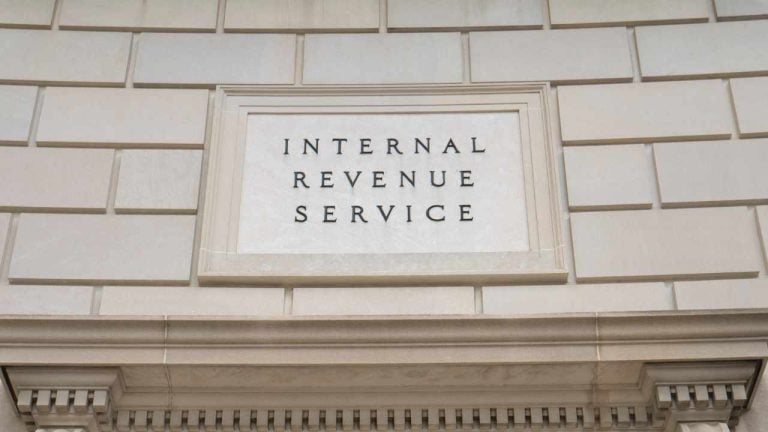
A new tax reporting law has entered into force in the U.S. Starting on Jan. 1, all Americans receiving $10,000 or more in crypto in the course of their trade or business must file a report with the Internal Revenue Service (IRS) within 15 days. “If you don’t file a report within 15 days of receiving the transaction, you could be found guilty of a felony offense,” Coin Center warned.
New Crypto Tax Law Takes Effect on Jan. 1
Effective Jan. 1, 2024, the Infrastructure Investment and Jobs Act, which passed in November 2021, requires “anyone who receives $10,000 or more in cryptocurrency in the course of their trade or business to make a report to the IRS about that transaction,” crypto policy advocate Coin Center explained in a blog post on Tuesday.
“The report must include, among other things, the name, address, and social security number of the person from whom the funds were received, the amount received, and the date and nature of the transaction,” Coin Center executive director Jerry Brito detailed, adding:
This law became effective on January 1st and all Americans are now subject to it … If you don’t file a report within 15 days of receiving the transaction, you could be found guilty of a felony offense.
Coin Center is a leading non-profit research and advocacy center focused on the public policy issues facing cryptocurrency. The organization filed a lawsuit against the Treasury Department in June 2022 challenging the constitutionality of this new crypto law. However, Brito emphasized that “the case is still in the courts,” cautioning: “Unfortunately for the time being there is an obligation to comply — but it’s unclear how one can comply.”
The executive director outlined some potential challenges in complying with the new regulations. “For example, if a miner or validator receives block rewards in excess of $10,000, whose name, address, and social security number do they report?” he began. “If you engage in an on-chain decentralized exchange of crypto for crypto and you therefore receive $10,000 in cryptocurrency, who do you report? And by what standard should you measure whether an amount of a particular cryptocurrency is equivalent to more than $10,000?”
He also questioned when someone makes a donation, such as in bitcoin (BTC) or ether (ETH), anonymously to a public address, who would the recipient list as the donor? “These are all questions the Treasury Department has yet to answer,” the executive director stressed.
Noting that the Internal Revenue Service (IRS) “has not issued any guidance answering these and other questions,” Brito further pointed out that there is also currently no form provided by the Treasury Department to report crypto transactions.
“The Secretary requires ‘cash’ to be reported using Form 8300, but has not explained how cryptocurrency, which is now a form of ‘cash’ under the law, should be reported on this form,” he described, adding: “Form 8300 is today sent to FinCEN [Financial Crimes Enforcement Network] as well as the IRS. Unlike with physical cash transactions, FinCEN has no authority to collect reports concerning cryptocurrency transactions, so one cannot be required to send Form 8300 there.”
Brito also clarified that the law applies to individuals as well as businesses. He explained in an X post on Tuesday:
The obligation applies to *individuals* if they receive $10k+ in the course of their trade or business, not just ‘businesses.’ So, if I’m a miner (even as an individual) I’m covered. Also, if I’m a day trader (even as an individual) I’m covered.
Moreover, he noted: “If I’m an NFT [non-fungible token] artist it would also cover me even if I don’t have an incorporated business, etc.”
While reiterating, “Again, it is not just ‘businesses’ that must comply but individuals too if they receive the funds in the course of their trade or business,” the Coin Center executive director opined: “That all said, what constitutes ‘trade or business’? Well, it’s not exactly clear from Treasury guidance to date. No clear bright line rule that I can find.”
What do you think about this new tax reporting rule requiring Americans receiving $10,000 or more in crypto to report transactions to the IRS within 15 days? Let us know in the comments section below.
Post a Comment